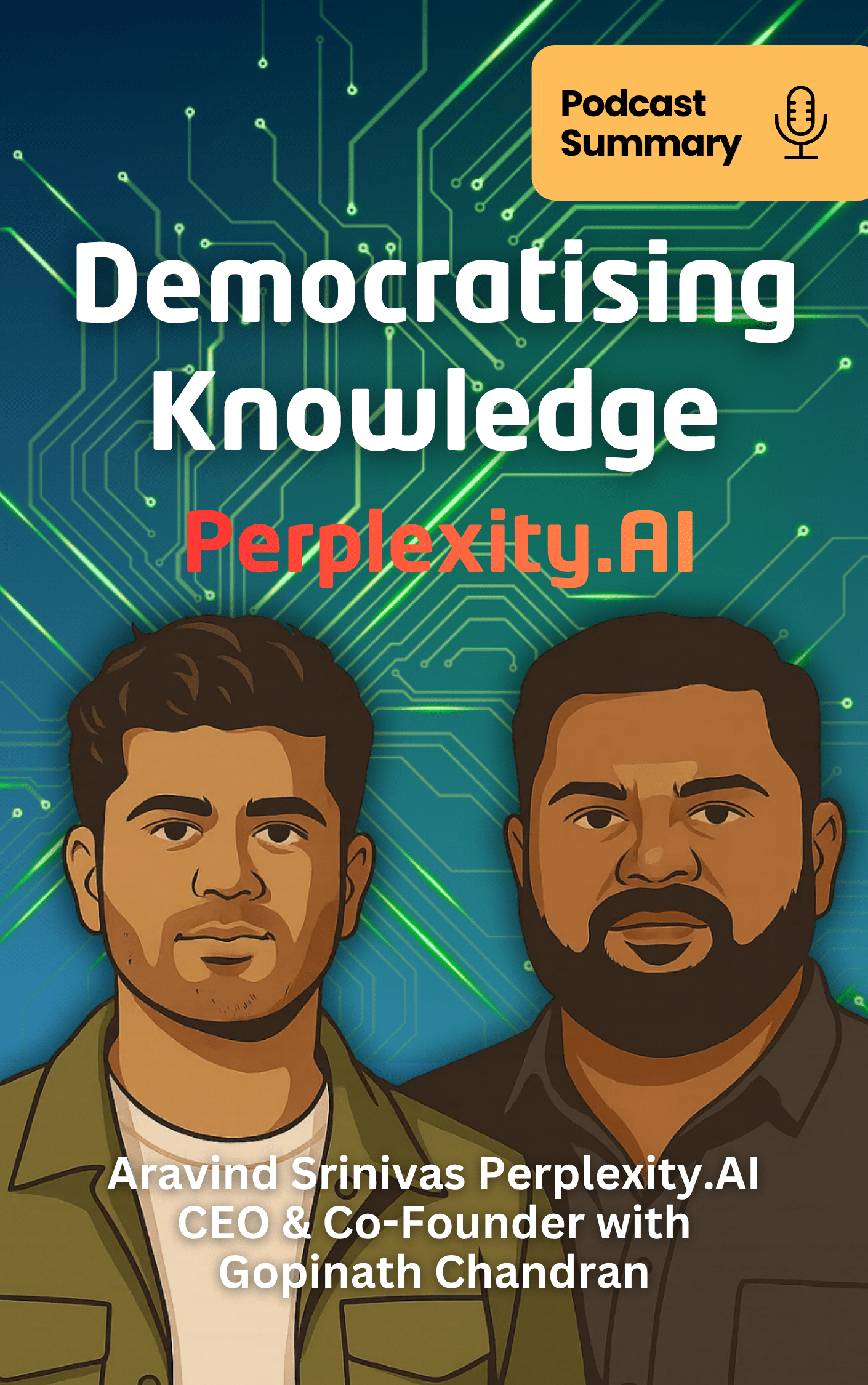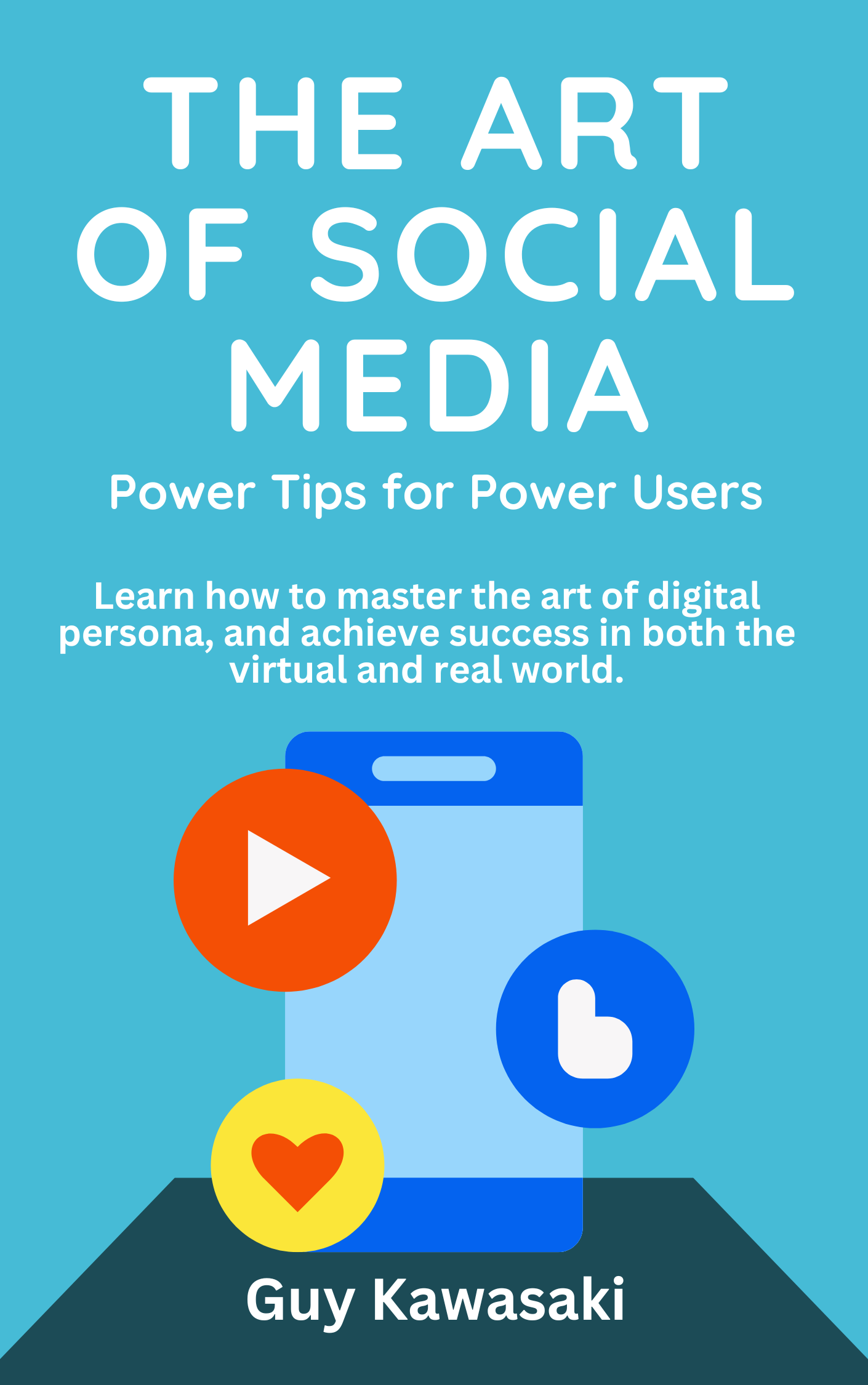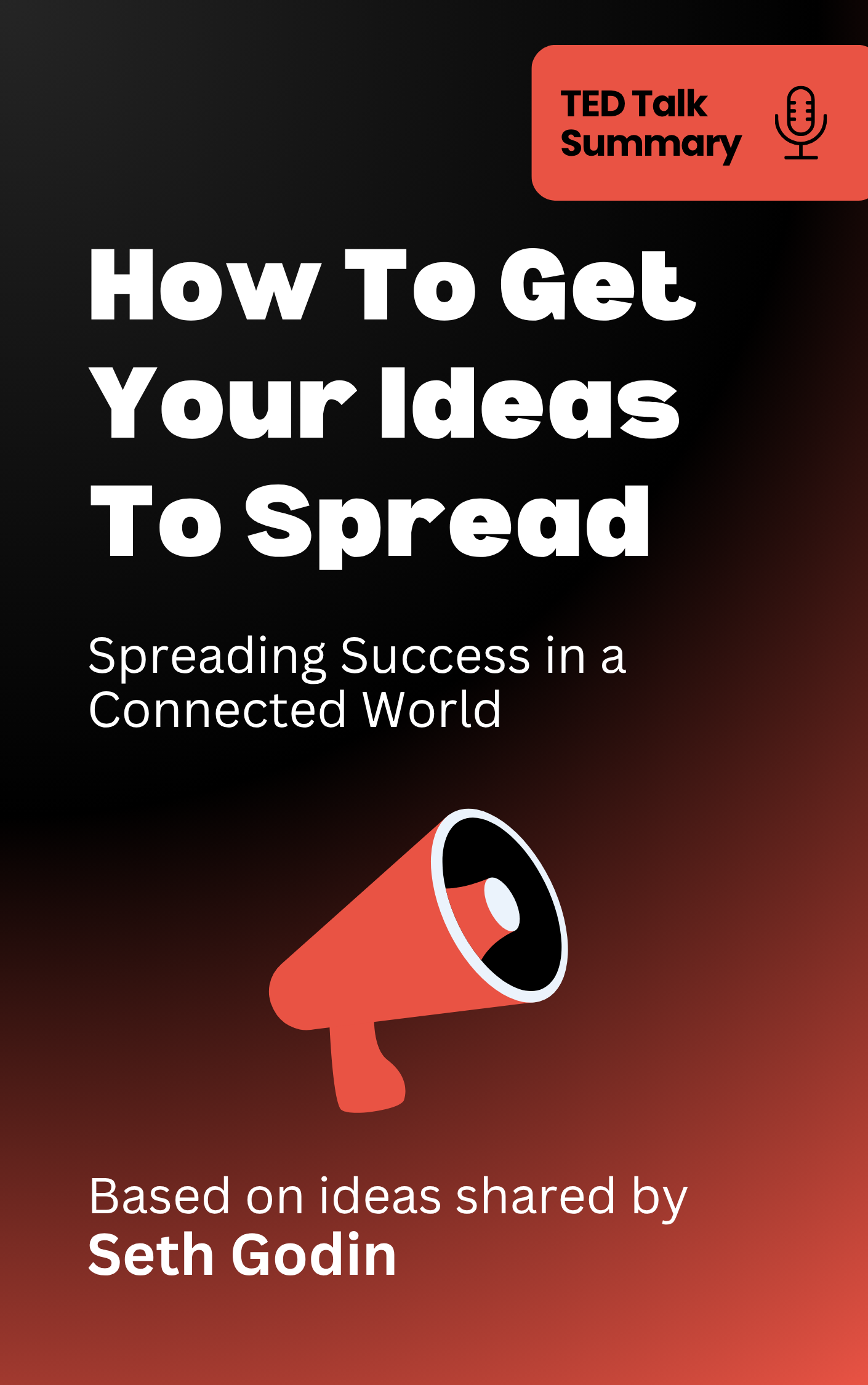Introduction
Step into an in-depth exploration of the philosophy and ambition driving Perplexity AI, straight from the mind of its CEO and co-founder, Aravind Srinivas. In a world saturated with information, how do we find truth? And how can artificial intelligence empower us to become better learners, rather than just better memorizers?
This discussion, hosted by Gobinath, explores Perplexity’s bold challenge to the search monopoly, its revolutionary vision for education, and the fundamental shift required for humanity to thrive in the age of AI.
Are you ready to discover how asking the right questions is the key to unlocking the future?
Perplexity: The Teacher and Knowledge Guide
What exactly is Perplexity AI? Aravind Srinivas describes it as a marriage of Google and ChatGPT, or perhaps Wikipedia and ChatGPT. But its role is specific: Perplexity is fundamentally meant to be a teacher and a knowledge guide, not a friend, companion, or soulmate.
This focus on teaching stems from a core differentiator: Perplexity is designed explicitly to prioritize real-time facts, accuracy, and authoritative sources.
The Fight Against Fabrication (Hallucination)
In the AI landscape, a major challenge is "hallucination," where the AI makes up incorrect or non-existent information. While some chatbots might encourage imagination (such as generating baby names or writing poetry), Perplexity's design intent is to actively fight hallucination. It achieves this by always pulling information from relevant, authoritative sources and providing citations for its answers. While no product is perfect, Perplexity aims for hallucination to occur maybe only one or two times out of a hundred.
For Aravind, focusing on trust and integrity is paramount. When you seek help from an expert, you expect them to be truthful and possess integrity; Perplexity aims to embody that same commitment to accuracy.
So, if Perplexity’s job is to be the expert, what does that mean for how we learn and think?
The Revolution of the Question
The old era of education incentivized being the "smartest person in the room"—the student who knew all the answers. But in a world where AI can answer almost anything almost accurately, we must fundamentally shift our focus from knowing things to asking the right questions.
Aravind notes that while much of our world has evolved—from horses to cars, or letters to WhatsApp texts—the way we teach has remained the same: a linear lecture in a classroom. Perplexity challenges this model by making the unit of learning the question. When you use Perplexity, you uncover knowledge through a sequence of questions, diving deeper and deeper.
Rewarding Curiosity in Education
The sources provide a powerful example of this shift:
At MIT's Introduction to Biology class, an entire semester was taught using Perplexity. Teaching assistants and students worked in one interface, and students were rewarded based on the authentic questions they asked. Assignments involved doing "deep research" using the tool, generating a report, and iterating on it. The professor found the experiment highly successful.
This method aligns with the principle shared by famous scientist Richard Feynman: "You do not truly understand something that you cannot create". True understanding is not merely knowing the name of a bird, but knowing its origins, ancestors, and why it exists the way it does—knowledge gained only by asking questions and going deeper.
This pursuit of depth is encapsulated in Perplexity’s mission statement, inspired by an Indian quote from the Gita: "Knowledge has a beginning, but no end". Perplexity sees itself as "where knowledge begins," recognizing there is no limit to learning. Even the greatest scientific discoveries, like Einstein questioning Newton’s laws, originated from someone deeply questioning something taken for granted.
But if AI can handle the facts, what unique human skill is left for us to master?
Curiosity: Humanity's Core Advantage
In a future where AI handles most cognitive tasks, what is the single advantage humans maintain? Curiosity and creativity. Aravind asserts that the original spark of curiosity—the imagination to ask, "What happens if we travel at the speed of light?"—is deeply human and something AI still cannot exhibit.
Historically, intelligence was measured by crystallized intelligence—memorizing facts or performing complex arithmetic in your head. Today, AI removes the necessity for these skills. The focus is shifting toward fluid intelligence.
Fluid Intelligence is the ability to quickly reason and make sense of new patterns when you don't even know something ahead of time.
Aravind suggests that students should be encouraged to engage in tasks that demand this fluid intelligence, such as teaching a class and being graded on how well the other students understood the topic. Curiosity, not talent or communication, is the key skill because what defines talent changes over time.
This new perspective on knowledge and skill naturally leads to the massive market that Perplexity is trying to conquer. How exactly are they challenging the biggest tech giant in the world?
Disrupting the Advertising Empire
Perplexity is undertaking an opportunistic attempt to encourage more competition and break Google's search monopoly. The core problem, according to Aravind, lies in Google's revenue model.
Google makes revenue by monetizing commercial searches (shopping, travel, legal, local services) through Adwords, connecting the user's query to the person who bids the most for that keyword.
For example, if you search on Google for health insurance, you are likely presented with links from providers competing for that keyword, rather than a factual answer about how to get insurance for employees. Google has an incentive to sell your query, not necessarily to give you the most accurate answer.
Perplexity, conversely, makes money through subscriptions.
Aravind cites Jeff Bezos's concept: "Your margin is my opportunity". While Google search advertising has nearly 100% profit margins, Perplexity can be aggressive in growing by accepting lower margins (even 0% initially, as the company is not yet profitable). This structural misalignment creates an asymmetric advantage: Google cannot aggressively copy Perplexity on commercial queries because doing so would jeopardize their highly profitable advertising business. This reluctance makes Google a "victim of its own success".
Perplexity's ambition is to ensure that in the future, Google will be merely one player in the AI search market, not the 90% monopoly it holds today.
But what does the future of search look like beyond the standard question-and-answer box?
The Agent Future and Global Reach
Aravind believes that within three years, the current chatbot experience will feel old and like a "legacy" system. The next evolution is the AI Agent.
Perplexity is building towards this future with its planned Comet browser. Comet is not meant to be just another browser; it will have agent capabilities, allowing users to delegate complex, multi-step tasks. For instance, you could tell Comet: "Search all the books recommended by xyz and put them on my Amazon cart and place the order for me". This requires the ability to use the browser to take actions—filling forms, uploading documents, and managing calendars—creating a highly personalized AI experience.
Aravind also discusses strategic growth, emphasizing Mukesh Ambani’s insight that "Content is king but distribution is God". To gain traction in India, where mobile usage is predominant, Perplexity partnered with a major Indian distribution entity. They give away Perplexity Pro (normally $20/month) for free for a year to get users habituated to asking questions instead of typing keywords. The plan is to introduce India-specific pricing later.
Aravind’s ultimate aim for the universe is to democratize knowledge.
The journey to democratize knowledge and challenge giants requires more than just good technology; it demands a distinct entrepreneurial mindset. What lessons can we take away?
The Entrepreneurial Mindset: Follow Your Heart
Aravind stresses that the experience of starting and building a company is the best kind of MBA, providing essential on-the-fly learning.
He highlights the importance of:
1. Decisiveness: As CEO, you have no manager, so you must be good at picking the most important thing to do. Most people struggle with decisiveness due to the cost of mistakes, but leaders must have the courage to take calls and quickly course-correct when wrong.
2. Risk-Taking: Aravind reflects on his own trajectory, noting that choosing to pursue a PhD (despite peers at Google making fun of him for potentially joining at a lower level) gave him the necessary technical depth and exposure (e.g., interning at OpenAI and DeepMind). He advises following your heart, not just chasing money or titles.
3. Value Creation: He encourages an entrepreneurial mindset in the Indian ecosystem, urging people to focus on creating new, global products and value, rather than simply climbing the corporate ladder.
The advice Aravind gives to students is simple: Stay hungry, stay curious, and adapt really quickly.Summary
The discussion between Aravind Srinivas and Gobinath paints a clear picture: we are living through an inevitable transformation. The age of rote memorization is ending, and the age of deep inquiry is beginning.
Your biggest takeaway should be this: The most valuable skill you possess is not what you know, but the genuine, childlike curiosity to ask "Why?". AI will handle the answers, but only you can generate the original spark of the question. By shifting your focus from knowing answers to asking better questions, you embrace fluid intelligence and position yourself to thrive in the new economy of AI agents and democratized knowledge.
Will you let AI make you lazy, or will you use it as a powerful tool to explore the endless beginning of knowledge?










